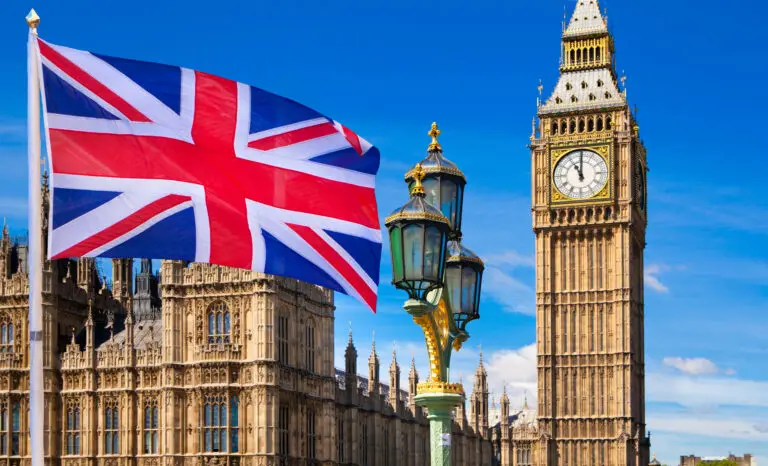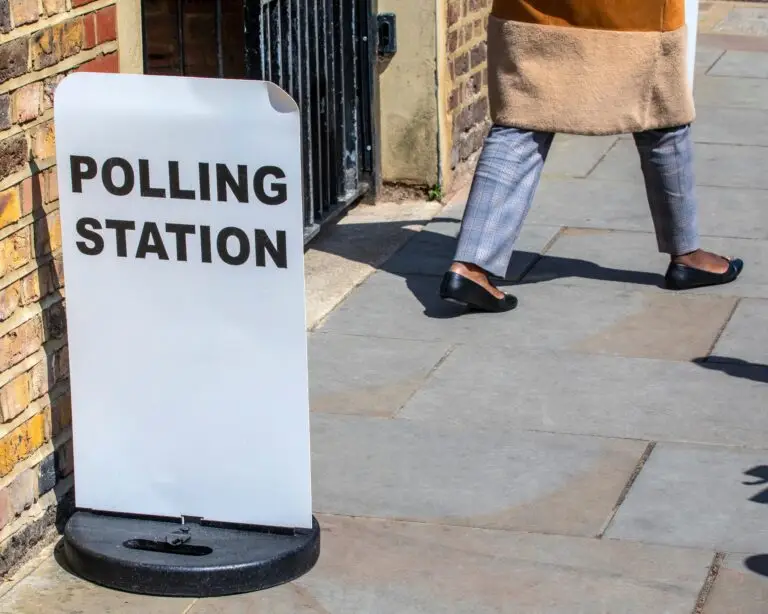Following Parliament’s return from recess on Monday 4 September, so has begun a politically-demanding Autumn term, with party conferences, the beginning of a new parliamentary session and the King’s Speech all scheduled before Christmas. Alongside this, the major parties will be seeking to dominate media discourse with favourable narratives about their credentials for government, maintaining a keen focus on the forthcoming election that is expected in just a year’s time.
Whilst 12 months is a long time in politics, the new appointments to both the cabinet and shadow cabinets indicate that preparations for the ‘long-campaign’ have begun, with both leaders hoping that their teams will have the ability, dynamism and cut through required to take their party to victory next year. For Starmer in particular, it will be important that his shadow cabinet gain experience in the workings of government before attempting to enter the machinery itself. Indeed, in what is set to be a busy parliamentary session – and possibly the Conservative Party’s last in government for some years – both Labour and the Conservatives will be ever-conscious of the upcoming election and unlikely to take any chances on their opportunities for success.
Legislation
As the Government prepares for the impending end of the 2022-2023 parliamentary session, it will be hoping to pass as many of the existing Bills currently making their way through Parliament as possible, or risk not being able to carry them over into the next session. The upcoming party conference season (19 September – 16 October) will also impact these timelines as parliamentarians go back on recess, and thus the Government will be keen to avoid any further delays to parliamentary business. While some Bills can be carried over into 2023-2024, the end of the parliamentary session provides a useful opportunity for Sunak to evidence his achievements in government and his ability to get things done; there will therefore be several key priorities for the Government ahead of Parliament’s proroguing.
Of these priorities, the Online Safety Bill will take precedence given that it was introduced in the 2021-2022 session and cannot be carried over twice. The Government has tabled a further amendment to the Bill this week that will require social media platforms to remove animal torture content on their sites. The move comes after the Government has faced pressure from animal rights activists dissatisfied with the desertion of the Animal Welfare Bill. Amendments by the Lords to the Online Safety Bill are set to be reviewed by the Commons from the 12 September 2023.
Other priorities for the Government include the Energy Bill – which faces scrutiny in the Lords this week as they consider changes made by the Commons – and the Levelling Up and Regeneration Bill – which continues in its report stage in the Lords. With both Bills therefore within the final stages of the legislative process, it is probable that they will be passed in time.
As with the end of any parliamentary session, it remains uncertain what will happen to the Bills that the Government is unable to pass, with limited pieces often carried over into the next term. This is likely to include the Renters (Reform) Bill which is only in its second reading after being introduced on 17 May this year. Meanwhile, more minor bills are likely to be abandoned, depending on various timetabling restraints and the Government’s ambitions for the next parliamentary session.
The King’s Speech
Confirmed for the 7 November 2023, the King’s Speech represents the State Opening of Parliament and thus the outset of a new legislative session. It is used by governments to identify their priorities and legislative plans for the upcoming term. While the Speech will be a first for both King Charles in his role as monarch and for Sunak as Prime Minister, it will be the last such event until a general election is held and Parliament reconvenes to sit under a potentially new government.
Given these factors, it is expected that Sunak will use the Speech to identify the areas he believes the Conservatives will be able to perform strongly on in the election, rather than introducing landmark legislation that will be time-consuming and potentially futile if they cannot get such Bills passed in the next year. Legislation introduced in the Speech is therefore likely to be less reformist than existing Bills moving through the Commons that typically take longer to be passed.
The Autumn Statement
Following the State Opening of Parliament, the Chancellor of the Exchequer will make his Autumn Statement. This will be released on 22 November and will be an important moment for this Conservative Government to attempt to restore its credibility as a fiscally responsible one after a year of high inflation and low growth. Indeed, for Jeremy Hunt who approaches the year anniversary of his appointment as Chancellor, the budget will also be an important marker for the success of his tenure thus far.
Despite the recent yield from tax receipts being greater than initially forecast and despite increasing pressure to support struggling families, Hunt is unlikely to announce any significant tax cuts, instead opting to focus on lowering inflation as a key priority. However, with an election on the horizon, the budget provides a crucial opportunity for the Government to introduce measures that will support those whose votes they will be looking to capture in 2024.
Conservatives, Labour and By-Elections
Conservative backbench MPs concerned about their seats in the next election may become increasingly defiant of their government, more interested in demonstrating to their constituents why they should stay in the job. Given the Conservative’s lingering 80-seat majority from the 2019 General Election, such rebellions shouldn’t affect their legislative capabilities but will go some way in undermining the image of strong governance that No.10 will seek to cultivate ahead of the election. Rishi Sunak will be hoping his speech at this year’s Conservative Party Conference (1-4 October, Manchester) will revitalise the Government and provide some needed political wins ahead of the long campaign in 2024.
Meanwhile, for a government-hungry Labour Party, the next year presents an opportunity to question whether the Conservatives have been successful in delivering their manifesto commitments during their nearly five years of governance and, crucially, ask voters if they would be better off under a Labour government. It will be important for Labour to continue to appear united and stable, while the Conservatives potentially crumble. Two landmark occasions to showcase this will be the publication of the party’s policy framework this week and the party’s conference (8-11 October, Liverpool) which is said to have had “record levels” of business engagement.
It is yet to be seen whether the Conservatives will be able to finish the term in the full force they started with in 2019 or if commentary about their impending electoral defeat will begin to take its toll on backbench and voter confidence. Indeed, the results of three upcoming by-elections may be an important marker for what we can expect in 2024.
The first by-election is expected to be held on 5 October as parties contest the Rutherglen and Hamilton West seat in Scotland after the Scottish Nationalist Party MP, Margaret Ferrier, was removed by her constituents. The remaining contests will be for the Conservative’s seats in Mid-Bedfordshire on 19 October after the incumbent Nadine Dorries resigned, with the Tamworth by-election also expected on this date following the resignation of Chris Pincher for misconduct. These events will be important for the Labour Party to demonstrate its successes in rebranding the party image, and especially whether they have been able to make ground amongst the Scottish public after a dismal performance in 2019. The Liberal Democrats will also be hoping to have a successful turnout, while the Conservatives are predicted to suffer losses.





